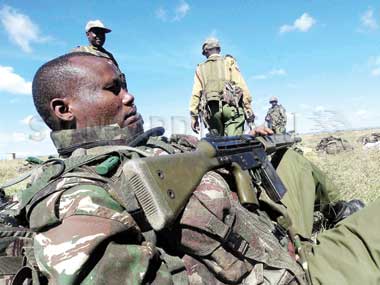×
The Standard e-Paper
Smart Minds Choose Us
By Paul Wafula and Moses Michira
 |
| Soldiers sent to restore order in Baragoi. [PHOTOS: MIKE SAITOTI/STANDARD] |
NORTHERN KENYA: Ruthless livestock traders are pushing stolen animals into the legitimate meat market in an underground economy that now threatens to wipe out two pastoralist communities in Northern Kenya.